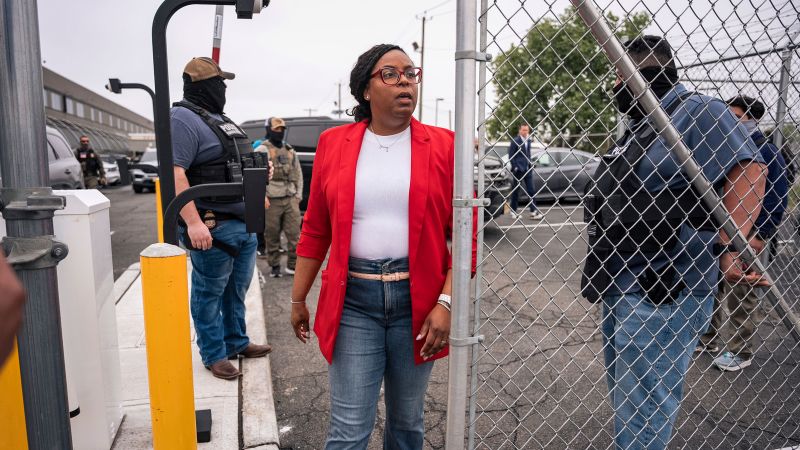Copyright marketwatch

But leading Republicans made a critical mistake. They alienated seniors. The Republican Study Group, two GOP senators, and House Minority Leader Kevin McCarthy all said or did things that suggested they were looking to cut Social Security and Medicare. President Biden, among others, seized the moment. Result? Seniors turned against the GOP, especially in swing states. The silver wave stopped the red wave. This time around? We are 13 months away from the next midterms, and on their the results will hang Trump’s hopes of getting anything done in the final years in office. Even Republican-favorable pollster Rasmussen currently shows Trump’s approval rating underwater, while the number who “strongly disapprove” of his performance in office is running well ahead of the number who “strongly approve.” I typically go to Rasmussen for Trump polling data because it’s one outfit that can’t be accused of liberal or establishment bias. Trump’s overall approval rating there today is roughly where it was in the immediate aftermath of his “liberation day” fiasco. The key thing about seniors isn’t just that they vote in high numbers, which they do, but that they vote in midterm elections. An astonishing 63% of over-65s voted in both the 2020 and 2024 presidential elections and in the 2022 midterms, according to Pew Research. That’s far above the turnout rate for other age groups. It’s twice the rate among those in their 30s and 40s. By contrast, the percentage among those without a college degree who voted in all three was less than 30%. This may help explain why the Trump administration isn’t worried about turning off, say, SNAP benefits, even if — as some experts argue — it is legally required to keep paying them. (Just 10% of SNAP beneficiaries have a college degree, according to some estimates.) The good news for seniors is that nobody, even the Trump administration, wants to risk messing with them. Consider what happened earlier this year, when a couple of Trump’s cabinet secretaries seemed to say the quiet part out loud, disparaging Social Security in its current form. Billionaire Commerce Secretary Howard Lutnick said that only fraudsters would complain if they failed to receive Social Security checks the following month. The initial headlines were so outrageous I assumed they represented a hysterical media overreaction to some mild remark. Then I watched the clip. More recently Treasury Secretary Scott Bessent — also, like Lutnick, a billionaire — talked about “privatizing Social Security” by the “back door.” His comments weren’t in the Lutnick league, but they set off a firestorm, and not without reason. In both cases the comments were immediately disavowed by the White House. The good news is that the administration doesn’t want to mess with seniors, especially in the run-up to the crucial midterms. The bad news is that few other groups enjoy the same privileged protection. (Oh, right: Farmers do. The administration will release $3 billion in farm aid, which farmers in the Midwest can receive while retaining the right to complain about big government and welfare for anybody else.) Air-traffic controllers and military personnel, among many others, are currently showing up to work for no pay. The administration is hinting that when the shutdown ends it will only give back pay to the people it likes, while others might not “deserve to be taken care of.” It will be interesting to see how American business owners react to the news that the Trump White House thinks fulfilling legal contracts is optional. But the political clout of American seniors, so graphically revealed this week, also raises more complicated issues. Even many independents and Democrats acknowledge that something is going to have to be done to deal with the growing costs of Social Security and Medicare as a share of the federal budget. Yet the share of voters who are over 65 is going to continue rising in the years ahead. That means their clout is going to keep rising.



